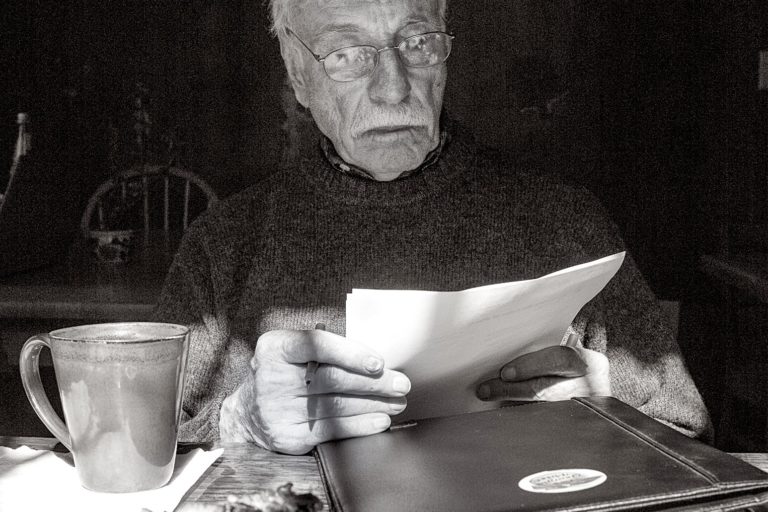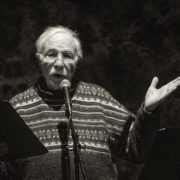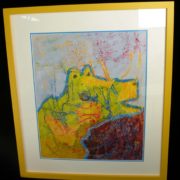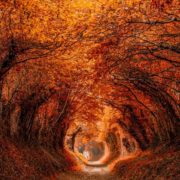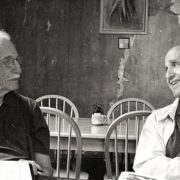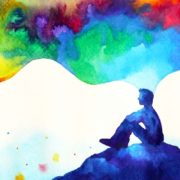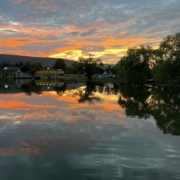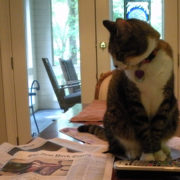The language of God
Hello friends, In the first chapter of the Tao Te Ching, we are told that the invisible ultimate is present in its manifestations. The sacred infuses the secular. Or, in the voice of Simone Weil, the world is the language of God. I become more convinced of this reality, especially while meditating. As an elder, I recognize the real tragedies and evils that accompany our lives, but these do not negate the sacredness of our secular lives. Thanks, Gene
Namaste
Too young to know better,
I presumed utopia
around the bend,
naïve about death
strolling well behind,
surely my cohort
would keep him at bay.
Now we walk side by side,
my pace slowed, his steady—
no need for him to hurry as he goes about
making many mind-sick
and soul-sick
with torments of everyday consciousness.
Euripides, early shrink-playwright,
dramatized the bakkhai prescribing
wine as remedy for these blues.
Now it’s heroin and more.
And where would Shakespeare be
without Hamlet’s miseries,
or today’s best writers without such anxieties?
Now older I experience
this heartbeat of history,
driving us to fame and gain
to dull the panic of the terrified.
Many followers of religions
take comfort in promises of
afterlife, described by preachers and holy books.
Once a believer in this reward,
I’ve turned unknowing,
to find meaning
in here and now gestures
to mitigate such built-in suffering,
without getting mad at God
for reneging on heaven
or any need to strike
Pascal’s wager.
An eastern prayer,
greeting and farewell,
Namaste, invites me back
into body and earth,
with bows and hand movements
to foster community
on a common path.
Namaste—may the spirit in me
honor the soul in you—with thanks
for the journey and few regrets

